STATEHOUSE REPORT | ISSUE 21.01 | JAN. 7, 2022
BIG STORY: Legislature’s plate is overloaded this year
NEWS BRIEFS: SCGOP pushes “Let’s Go Brandon” gear ahead of riot anniversary
LOWCOUNTRY, Ariail: Stop the steal
COMMENTARY, Brack: Let’s get to work, America
SPOTLIGHT: The Felkel Group
MY TURN, East: Prioritize public education in 2022
FEEDBACK: Government serves people
MYSTERY PHOTO: A look into the past
DONATE: We’re proud to offer Statehouse Report for free. For 20 years, we’ve been the go-to place for insightful independent policy and political news and views in the Palmetto State. And we love it as much as you do. But now, we can use your help. If you’ve been thinking of contributing to Statehouse Report over the years, now would be a great time to contribute as we deal with challenges thanks to the pandemic. In advance, thank you.
Legislature’s plate is overloaded this year

By Andy Brack | When legislators return to Columbia Tuesday, they’ll be drowning in work to do when the House and Senate gavels clack to open the 2022 session.
Not only do they have to deal with three different budgets, but they have to make sure to deal with reapportionment of legislative districts, set primary elections for 2022 and deal with an array of leftover questions from how to deal with mask mandates, education reform, tax fairness, medical marijuana and more.
“There’s not going to be a lot of time to take up more substantive things,” one state senator said.
On display in the midst of all of this will be a culture war that has ramped up in recent years.

“Whether it [a culture war] is real or perceived is up for debate,” said state Sen. Sean Bennett, R-Summerville. “But for many in our society, it is real and that can not be ignored. One thing is for sure: When beliefs are dismissed, it sets a battlefield. Worse, when one shows contempt for another or their ideas, there is no coming back from that.
“I happen to believe that when exposed to the competition of ideas to solve our nation’s problems, ‘my side’ has real solutions to the real problems. And those ideas get better when challenged. I am often frustrated that there are few moments in time when we actually engage.”
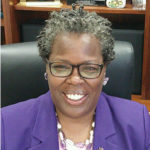
Rep. Gilda Cobb Hunter, D-Orangeburg, explained how symbolic issues might get more time than substantive ones in 2022: “The issues that the House is likely to take up and pass unfortunately will be those that follow the national Republican playbook designed to divide rather than build consensus. Transgender students playing in sports; additional restrictions on abortion; anti-vaccine and masks restrictions that will continue to add to the rise in COVID-related hospitalizations and deaths; and bills addressing Critical Race Theory (CRT), even though it is not taught anywhere in the public schools in South Carolina.”
Here’s a look at some of the major – and minor – issues that will take up time as lawmakers race to end the session in June.
Three budgets on tap
In a good year, the General Assembly works to craft a single budget to spend general tax revenue from fees and taxes on sales and income. It’s an arduous process with wrangling and arm-twisting to figure out how to allocate billions of dollars, often including some surplus dollars and new revenues from annual growth in the state.
But in 2022, state lawmakers have two extra budgets to deal with – about $525 million from the settlement of a years-long case with the federal government over the Savannah River Site (SRS) and spending of about $2.5 billion in other federal funds made available to cope with economic fallout from the COVID-19 pandemic.
General fund budget. The state will start the session with about $9 billion in general tax revenues that occur each year. On top of that, there will be an extra $1 billion in new recurring revenues from growth and $1 billion from a surplus. Additionally, lawmakers will have a $1 billion contingency reserve, which essentially will be carried over. Bottom line: Lawmakers will have about $11 billion in funds to start with in the coming year in the regular budget.
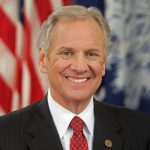
SRS settlement. The half-billion-dollar settlement was the result of a lawsuit over storage of plutonium for years at SRS by the U.S. Department of Energy, which agreed to remove tons of it by 2037. In December, Gov. Henry McMaster suggested using the monies for “transformative” projects: “These settlement funds present us with a once in a lifetime opportunity,” he said. By making big, bold, and transformative investments in the areas of education, infrastructure, workforce, and economic development, we can quite literally change the future of the region and the state.” Aiken-area lawmakers say they think the money should be spent in the Aiken region to make up for years of issues related to the nuclear facility.
Pandemic funds. Legislators also will have about $2.5 billion in one-time money from the American Recovery Plan Act to spend on everything from improving health outcomes for South Carolinians, curbing crime and covering losses the state government suffered during the pandemic. Authorized uses also include making investments in water, sewer and broadband infrastructure. Look for big battles on how money could be split, including uses to improve roads.
Redistricting and elections
House members and senators spent the summer and fall working on new election maps for House, Senate and congressional districts. They’ve approved House and Senate maps, but still have to finish work on a congressional map as some complain it is overly gerrymandered to make a Charleston-area congressional district more Republican-leaning that it should be.
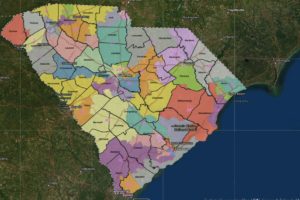
The newly redrawn House map faces a federal lawsuit alleging it continues South Carolina’s ““shameful history and ongoing record of discrimination.” It’s unclear whether the Senate map, which many observers view as fairly drawn, will face a lawsuit, but the congressional map is expected to draw a legal challenge.
All of the legal twisting is likely to have an impact on the legislative process. If lawsuits aren’t settled soon, the election primary date may be changed until the fall, which means filing for elections would shift from March to sometime in June. That would mean lawmakers would be looking over their shoulders throughout the 2022 session for potential challengers. And in turn, that would encourage a more partisan environment – which would thwart a lot of meaningful work being done.
Several school issues on tap
Lawmakers will also deal with several measures dealing with whether school districts can require masks to reduce the threat of the COVID-19 virus. In the 2021-22 budget, lawmakers included a controversial proviso to thwart mask use, but it was declared unconstitutional. In 2022, look for arguments over whether the proviso will be codified.
Legislators also will consider at least three other major education issues: Whether to pay teachers more as thousands leave the profession; whether to allow a voucher-like credit for private schools that would siphon money from public schools; and whether to rewrite rules governing how charter schools operate.

“You’re going to see some of the shell games this year,” state Sen. Mike Fanning said at a December forum. “You’ve already heard some of it — sex books in Fort Mill libraries, critical race theory — you’ll hear every single thing thrown out the one year South Carolina has more revenue than we’ve ever had in the history of the state — the one year we’ll have more additional revenue than we will ever have in the next 100 years. … Don’t buy it.”
Other issues on the horizon
Look for these issues to be aired during the session, too:
Abortion. A perennial discussion, especially in an election year, it’s likely that pro-life advocates will push for more abortion restrictions, despite expected rulings from the U.S. Supreme Court.
Medical marijuana. After state Sen. Tom Davis, R-Beaufort, has pushed for years to get approval for medical uses of marijuana to relieve suffering of residents with crippling diseases and conditions, the measure looks like it will get an early airing. Chances reportedly are better this year for passage than ever before.

Elections. Also look for competing proposals on elections. Some want to expand voter access through bills such as H. 3822, while others want more uniform rules to make uniform election processes. “We use the line that a vote in Charleston County needs to be the same as a vote in York County,” said state Rep. Gary Simrill, majority leader of the S.C. House.
Tax reform. Some expect discussions on overhauling the tax code to be fairer may start, but likely won’t be resolved. Others say there could be discussion of income tax bracket changes.
“Other issues of importance but unlikely to get much debate or see the light of day are gun-safety reform and equal pay,” said state Rep. Beth Bernstein, D-Columbia.
- Have a comment? Send to: feedback@statehousereport.com.
S.C. GOP pushes “Let’s Go Brandon” gear
By Sam Spence | The S.C. Republican Party email-blasted supporters Tuesday morning, letting them know to “Get Your Let’s Go Brandon Gear Here!” — a reference to a months-old anti-Joe Biden meme.
 The party’s hottest new merch hit inboxes two days before the one-year anniversary of the deadly U.S. Capitol invasion by spurned supporters of defeated former Republican President Donald Trump out to stop the certification of the 2020 election.
The party’s hottest new merch hit inboxes two days before the one-year anniversary of the deadly U.S. Capitol invasion by spurned supporters of defeated former Republican President Donald Trump out to stop the certification of the 2020 election.
“Start the New Year showing Joe Biden how you feel,” the party email said.
Examination of S.C. GOP’s Shopify-hosted store source code shows the party’s “Let’s Go Brandon” products were uploaded last month, but were updated Tuesday morning.
South Carolina Democratic Party Chairman Trav Robertson said the apparel is par for the course.
“Are we really surprised? This is the same group that supported a coup to overthrow our democracy,” Robertson told the City Paper in a text message. “It’s the same group who supported treasonous acts against individuals who are carrying out their constitutionally mandated duty. These folks believe in the overthrow of our democracy.”
It’s not the first time, however, that Biden has appeared alongside an expletive on a mainstream political T-shirt. The Obama-Biden campaign sold “BFD” shirts after an energized Biden was caught on mic when President Barack Obama signed the Affordable Care Act into law.
Spence is editor of the Charleston City Paper, where this story first appeared.
In other recent news:
![]() Virus tops 1 million S.C. cases as positive test rate skyrockets. State health officials say more than 1 million cases of COVID-19 have been documented in the Palmetto State since the pandemic began. Additionally, the percentage of positive tests reported is approaching 30 percent. More: WIS TV.
Virus tops 1 million S.C. cases as positive test rate skyrockets. State health officials say more than 1 million cases of COVID-19 have been documented in the Palmetto State since the pandemic began. Additionally, the percentage of positive tests reported is approaching 30 percent. More: WIS TV.
Governor, DHEC say state shutdown not needed. Gov. Henry McMaster said Wednesday the coronavirus’ omicron variant is not as serious or deadly, so there is no need to shut down school or businesses amid the record number of cases being reported. The state reported more than 10,000 confirmed and probable cases of COVID-19 on back-to-back days this past weekend — a level never seen even in the sharp peaks of the winter and summer of 2021. More: Charleston City Paper, AP News, WCBD, WYFF.
McMaster puts ethics on his agenda for 2022. The governor, who is facing a reelection bid this year, said he wants to beef up watchdogs in the state to help curb public office scandals. McMaster will package those proposals into his soon-to-be-unveiled executive budget, calling on lawmakers to spend some $3.4 million more per year on measures meant to repair South Carolinians’ faith in their government. More: The Post and Courier.
Students back in school despite surge. Students across the state are returning to school this week as COVID-19 cases are surging. State school officials have updated quarantine and isolation policies to allow students to return more quickly after they’ve tested positive or been exposed to someone with the virus. According to the state Department of Education, they can return five days after symptoms start and 24 hours after having a fever without using fever-reducing medicine. On return, they must wear masks for at least five days. Local districts may have tighter rules. Meanwhile, colleges in the state are also revamping policies. More: WSPA, WYFF, AP News.
State education chief talks hopes, concerns for final year. S.C. Superintendent of Education Molly Spearman will not seek reelection in 2022. She spoke with WISTV about her hopes and concerns in this last year, plagued by the Omicron surge of the coronavirus pandemic. More: WISTV.
SCforEd focuses on teacher salaries, contracts ahead of session. Statewide education group SCforEd is working ahead of the coming legislative session to continue its push for higher teacher wages and better working conditions. More: WSAV.
MLK events around the state canceled, going virtual. King Day at the Dome in Columbia and Charleston’s annual Martin Luther King Day parade will go virtual for a second year in a row amid the coronavirus pandemic. Meanwhile, Hilton Head’s MLK events were canceled due to COVID surge. More: The Post and Courier, The Hilton Head Island Packet.
S.C. gas prices to jump 3.7 cents this week. GasBuddy announced Monday that prices at the pumps in the Palmetto State rose by an average of 3.7 cents per gallon over the past week, reaching $3.01. Meanwhile, the national average slipped by one cent per gallon, settling at $3.27. More: CBS4.
New S.C. license plate depiction ‘iconic’ image of 1776 battle now available. South Carolina drivers can now signal their pride in South Carolina’s Revolutionary War role with a 250-year anniversary license plate. More: The Post and Courier.
- Want more headlines every business day that are like this? Visit our friends at SC Clips.
Stop the steal (of democracy)

Cartoonist Robert Ariail always has an interesting take on what’s going on in South Carolina. Love the cartoon? Hate it? What do you think: feedback@statehousereport.com.
Let’s get to work, America
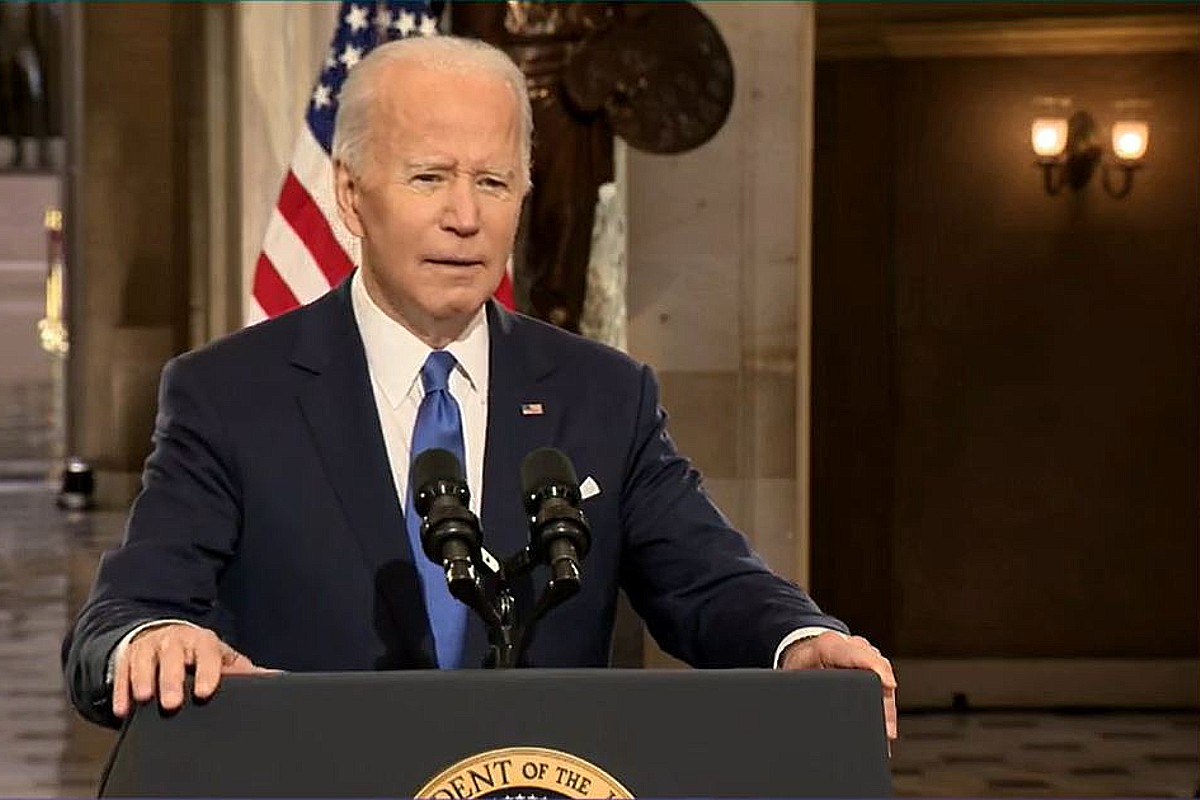
By Andy Brack, editor and publisher | It’s been a year since a mob of enraged Americans stormed the United States Capitol. What’s happened since may be even more shocking: The attack accentuated our country’s political fissures instead of starting to heal them.
 The nation, in fact, still seems to be in some kind of weird shock and denial. Half of the country remains baffled by the riot and the other half desperately is trying to reframe what happened as less than it really was.
The nation, in fact, still seems to be in some kind of weird shock and denial. Half of the country remains baffled by the riot and the other half desperately is trying to reframe what happened as less than it really was.
Contrast this to the feeling most Americans had on Sept. 12, 2001, the day after the deadly coordinated jet attacks by foreign terrorists that killed almost 3,000 people and wounded 25,000. On that day and those that followed, Americans pulled together, united against terrorism.
But in the year since the riot, Americans haven’t pulled together against threats posed by domestic terrorists. In the past, they rallied around troops and against foreign enemies, but not these days around democracy. It’s sad. It’s scary.
Our communities and nation need to heal and get stronger. Americans – Republicans, Democrats, independents and the millions who don’t seem to care about politics – have to start caring about strengthening the foundations of our country, lest we lose what too many have died for.
After a year of watching chattering politicians, it’s clear America can’t leave the healing to them. Rather, we all need to take charge in our own special way. Just as you can earn more money by saving early and taking advantage of compounded interest, Americans of all stripes need to start investing their time and energy in promoting democracy.
Think of the compounded impact to democracy if everyone started getting more involved, just as the whole country rallied during the last great global threat to democracy, World War II. Back then, Americans invested by buying war bonds, saving scrap steel and rationing for the war effort. As American men fought in foreign lands, women joined the workforce to build the planes, tanks and materiel needed to fuel the war machine.
In other words, people got involved. We need that now in our communities. The combined impact of lots of individual actions can turn around the split in our society.
Imagine an America where people get off the couch, turn off the TV and engage more by working and talking with neighbors. They can build understanding and their communities by working in gardens, sharing books, talking sports, starting book clubs, sharing recipes and teaching children how to work together.
Imagine the impact of increasing volunteerism across the land so Americans interact more at food banks, libraries, churches, hospitals, schools, local parks and more. They can pick up trash along roads and beaches, adopt a pet, donate a meal to a shift of firefighters, recycle oyster shells from a neighborhood roast, help someone fix their home or get involved in any of hundreds of ways to make a real difference in the quality of local life.
And certainly, Americans can do things to promote civic engagement by more people getting involved in the often maddening work of oiling the wheels of democracy. First and foremost, all Americans of voting age need to get to the polls and vote. Others who want to do more can run for office, donate to candidates, support advocacy organizations that promote positions they support, share opinions in newspaper and media outlets, and promote community civility. They can demand that Americans in the governing class set aside bickering and make real reforms to remove hurdles to participating in elections and making it easier to vote and get involved in the fundamentals of our democracy.
Let’s get off our behinds. Let’s get out of our comfort zones and the blue screens of televisions and smartphones.
Just think of the positive changes to strengthen the country from a billion extra hours of community service. But everyone has to do their part. Let’s get to work, America.
Andy Brack, editor and publisher of Statehouse Report, also is publisher of the Charleston City Paper. Have a comment? Send to: feedback@statehousereport.com.
The Felkel Group
 The public spiritedness of our underwriters allows us to bring Statehouse Report to you at no cost. This week in the underwriter spotlight is The Felkel Group, a battle-tested public affairs and business development firm that assists corporations, associations and not-for-profits that are serious about their long-term success. The Felkel Group solves problems, crafts and delivers messages, helps organizations to manage crisis, and uses a wealth and breadth of valuable relationships to help to seal deals.
The public spiritedness of our underwriters allows us to bring Statehouse Report to you at no cost. This week in the underwriter spotlight is The Felkel Group, a battle-tested public affairs and business development firm that assists corporations, associations and not-for-profits that are serious about their long-term success. The Felkel Group solves problems, crafts and delivers messages, helps organizations to manage crisis, and uses a wealth and breadth of valuable relationships to help to seal deals.
The Felkel Group is also home to an outstanding advocacy tool called The Rap Index, a powerful intelligence tool that employs sophisticated computer modeling and profiling techniques to help organizations find their most effective advocates. To learn more about The Felkel Group and its Rap Index, go to: http://www.felkelgroup.com.
East: Prioritize public education in 2022
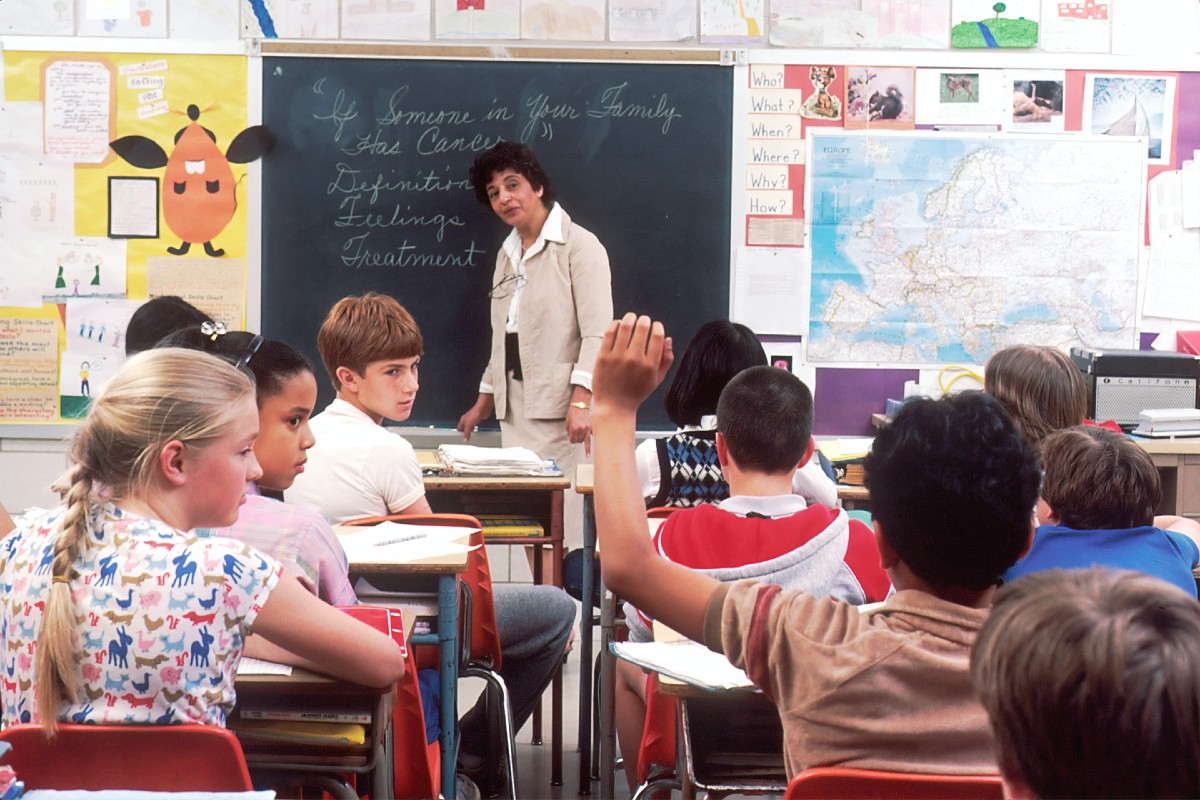
By Sherry East | As the November report released by Center for Educator Recruitment, Retention, & Advancement (CERRA) indicated, the educator and school staffing crisis facing South Carolina has reached unprecedented heights with school districts reporting nearly 1,063 vacant teaching positions in Sept./Oct. 2021.

This alarming number only tells part of the story, as it does not reflect bus driver, substitute, or other school staff vacancies. Staffing shortages result in larger class sizes, less individualized attention, and inevitably unsafe learning conditions for South Carolina’s students.
It’s time for our legislature to address the crisis by listening to educators. As the 124th South Carolina General Assembly resumes session, The South Carolina Education Association (The SCEA) urges legislators to consider the following priorities:
First, utilize money in this year’s state budget to fully fund the base student cost and to deliver on Gov. McMaster’s 2020 State of the State promise to increase the educator starting salary to the national average — currently $41,163 — and pass increases on every step of the salary schedule, which helps to retain teachers. In addition, the salary of non-certificated school staff such as bus-drivers, paraprofessionals, clerical staff, janitorial staff and cafeteria workers should be raised substantially to avoid losing dedicated, skilled workers to more highly compensated private industry positions.
The second issue legislators must act on now is unencumbered time and recertification. Unlike many surrounding and competing states, South Carolina’s educators have no guarantee of a duty-free lunch or daily planning time. There are countless stories of educators unable to even use the restroom during the day.
Moreover, the high-quality instruction necessary for the deep learning South Carolina students need requires time to plan. H. 3465, which has already passed the House, requires districts to plan for this unencumbered daily time, which is essential to quality learning outcomes.
Also, recertification — particularly for veteran teachers — is needlessly cumbersome. H. 3465 would examine the certification process and find ways to cut through red tape to let teachers do their jobs.
The third issue of importance is working conditions. While the problems with working conditions in South Carolina schools are complex, there are two clear starting points: class-sizes and contracts.
- Research from the Learning Policy Institute shows children in states with smaller classes achieve better outcomes and teacher turnover is lower.
- Educators must also be treated as professionals starting from the date they sign their contracts. Most often, contracts for educators in South Carolina offer no benefit or protection while allowing significant leeway for districts and administrators.
For example, when educators are offered reemployment by their district, they must accept that offer before May 10—often before the district determines staffing assignments for the coming year. Educators need more time to make the right decision for themselves and their families without fear of reprisal
The SCEA is ready to organize and mobilize the collective voice of educators across the state to achieve the schools South Carolina’s educators and students deserve. We hope elected officials are ready to listen to their constituents.
We also urge all public-school staff and allies of public education to take the Education Voter Pledge to let their state Senator and Representative know that these are the issues that matter most to them and the issues that will most impact their decisions as voters.
- Sherry East is president of the South Carolina Education Association. Have a comment? Send to: feedback@statehousereport.com.
Government serves people
![]() To the editor:
To the editor:
Like your article in the Statehouse Report today about government. People seem to think that folks on hard times are ne’er-do-wells and should be pushed aside. Government and its services are vital to a civil society. Happy New Year!
– Dr. Robert Saul, Greenville, S.C.
Smart approaches to our challenges
To the editor:
You did a fine job outlining the challenges of the New Year through needed policy changes and implementation of smart approaches to our many challenges. You nailed one when you compared our roads to a roller coaster of potholes and speed bumps. I loved it.
Naturally you gave an excellent explanation of how the government works for our benefit. What ever happened to former Supreme Court Justice Sandra Day O’Connor’s initiative of teaching basic civics classes in our schools?
– Ledlie Bell, Charleston, S.C.
Send us your thoughts
We receive a few comments a week and look forward to publishing. But often we can’t because we can’t verify the identity of the writer. To be published, you’ve got to provide us with contact information so we can verify your letters. Verified letters to the editor are published weekly. We reserve the right to edit for length and clarity. Comments are limited to 250 words or less. Please include your name and contact information.
-
- Send your letters or comments to: feedback@statehousereport.com
A look into the past

Here’s something that once was in South Carolina, but no longer is. What is it? What’s its significance? Send your guess to feedback@statehousereport.com — and remember to include your name, home city and contact information.
 Last week’s mystery, “Another old white building,” shows the Governor’s Mansion in Columbia.
Last week’s mystery, “Another old white building,” shows the Governor’s Mansion in Columbia.
Lots of people guessed correctly. Congratulations to: Chip Felkel of Greenville; Don Clark and Bill Segars of Hartsville; Will Williams of Aiken; Charles Lesser, Susan James Elizabeth Jones, John Hart, Jean Prothro, Dalton Tresvant and Karen Ingram, all of Columbia; Will Bradley of Las Vegas, Nevada; Steve Willis of Lancaster; Pat Keadle of Wagener; Jacie Godfrey and Barry Wingard, both of Florence; Allan Peel of San Antonio, Texas; David Lupo of Mount Pleasant; Wayne Beam of Clemson; and Curtis Joyhner of Charleston.
Godfrey shared, “Built in 1855 as a residence for Arsenal Military Academy, [Union Gen. W.T.] Sherman’s troops spared it during their burning of the city at the end of the Civil War. It had been selected as the official Governor’s Mansion since 1868. Now it is the center of Governor’s Green, a complex of beautiful gardens and two houses, the Lace House and the Boylston House.”
- Send us a mystery. If you have a photo that you believe will stump readers, send it along (but make sure to tell us what it is because it may stump us too!) Send to: feedback@statehousereport.com and mark it as a photo submission. Thanks.
ORDER NOW: Copies are in Lowcountry-area bookstores now, but if you can’t swing by, you can order a copy online today.
ABOUT STATEHOUSE REPORT
Statehouse Report, founded in 2001 as a weekly legislative forecast that informs readers about what is going to happen in South Carolina politics and policy, is provided to you at no charge every Friday.
- Editor and publisher: Andy Brack, 843.670.3996
Donate today
We’re proud to offer Statehouse Report for free. For more than a dozen years, we’ve been the go-to place for insightful independent policy and political news and views in the Palmetto State. And we love it as much as you do.
But now, we can use your help. If you’ve been thinking of contributing to Statehouse Report over the years, now would be a great time to contribute as we deal with the crisis. In advance, thank you.
Buy the book
Now you can get a copy of editor and publisher Andy Brack’s We Can Do Better, South Carolina! ($14.99) as a paperback or as a Kindle book ($7.99). . The book of essays offers incisive commentaries by editor and publisher Andy Brack on the American South, the common good, vexing problems for the Palmetto State and interesting South Carolina leaders.
More
- Mailing address: Send inquiries by mail to: P.O. Box 21942, Charleston, SC 29413
- Subscriptions are free: Click to subscribe.
- We hope you’ll keep receiving the great news and information from Statehouse Report, but if you need to unsubscribe, go to the bottom of the weekly email issue and follow the instructions.
- Read our sister publication: Charleston City Paper (every Wednesday in print; Every day online)
- © 2021, Statehouse Report, a publication of City Paper Publishing, LLC. All rights reserved.
















 We Can Do Better, South Carolina!
We Can Do Better, South Carolina!